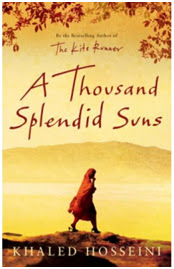British science writer Brian Clegg, in his book Before the Big Bang (St Martin’s Press,
New York, 2009), declares:
Although the Big Bang is the best accepted theory [about the start of the universe], it certainly isn’t the only one, and a number of scientists regularly pick holes in the evidence supporting it. It doesn’t help that the whole thing has the feeling of something held together with a Band-Aid. If it hadn’t been for the addition of the idea of ‘inflation’, the whole concept wouldn’t work, and the trouble with ‘inflation’ is that although it’s something that would make what’s observable possible, no one can come up with a decent explanation why it should have happened.
In a chapter titled ‘Inflating the Truth’, Clegg states:
Let’s be absolutely clear here. Dark matter and dark energy are accepted parts of the current most widely accepted model of the universe, but as was the ether before them, they are unlikely constructs, added to make an inexplicable behavior fit the natural world. They are ‘place markers’ in physics, not necessarily true concepts. They may prove to exist, but it is entirely possible that we will soon have an accepted model that disposes of them and deploys totally different reasons for the behaviors that are explained by dark matter and dark energy.
Physicists have come up with many wonderful constructs based
on and anticipating the evidence, including universes succeeding each other from
infinity and for eternity, and multiple universes each existing in a bubble and
possibly influencing each other’s behavior. So Clegg certainly captures the
spirit of discovery exhibited by those exploring incredibly taxing scientific
questions when he concludes his book in this way:
We may not have definitive answers, but the different possibilities remain a delight that will intrigue anyone who looks out at the night sky with a sense of awe, wondering where it all came from and where it all began.
Another piece that examines many questions on
the nature of the universe that remain in doubt is ‘What Happened Before the Big
Bang? The New Philosophy of Cosmology’ published in The Atlantic in January of 2012. This has the startling statement
from a leading philosopher of science that though Stephen Hawking “is a
brilliant man, he's not an expert in what's going on in [the philosophy of physics]".
I think he just doesn't know what he's talking about. I mean there's no reason why he should. Why should he spend a lot of time reading the philosophy of physics? I'm sure it's very difficult for him to do. But I think he's just . . . uninformed.
In brief, our scientific understanding of the origins of the world we inhabit is obviously
in its infancy and, to mix metaphors, it is extremely presumptuous to close the
stable door at this early stage as to conclusions about the mechanical processes that gave rise to the
weird and wonderful phenomena we are sure or often only suspect occur around us.

